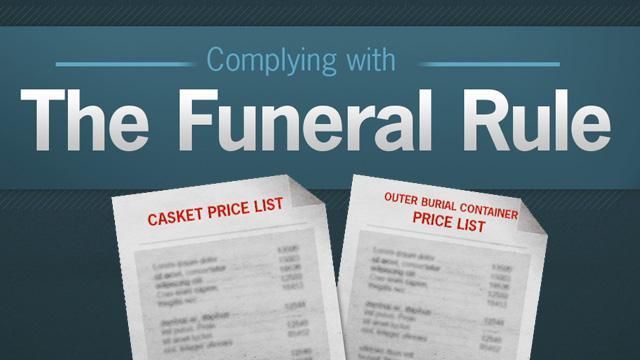By Benjamin Shafer
•
04 Dec, 2023
Life insurance is one of the most trusted ways to provide for loved ones after you’ve passed. But deciding which policy is right for you can be challenging. What kind of senior life insurance should you have? How much is enough? What’s the best life insurance to have at your age? Life insurance for seniors is different from company to company, can involve taking a medical exam (also called a life insurance exam) or just answering health questions, costs anywhere from $20 a month to several hundred dollars a month, and can be used for everything from paying off large debts or covering funeral costs. So it takes some research to find the best life insurance for seniors. Although it’s true that you’ll pay more for life insurance once you’ve reached your golden years, that doesn’t mean you don’t have options. In fact, for those who want to leave cash benefits for their family — or those who want to ensure their final expenses are covered — affordable senior life insurance policies exist. You may be able to pay as little as $20 a month, or you could end up paying over $1,000 a month. In this article, we’ll cover all of your options – including final expense insurance for seniors – so you can make the right decision. What is the Best Life Insurance for Seniors? When looking for the best life insurance for seniors, it’s important to ask the following questions: How much coverage do I need? What kind of life insurance should I get? What kind of policy is best for my family? How much can I afford? Can I get approved for the policy I want? Does the policy including living benefits? You can start answering these questions by reviewing your financial situation. For example, do you have a spouse, kids, or anyone else who is dependent on you? Do you have large bills like a mortgage or car payment that would need to be paid when you’re gone? If anyone in your life depends on you financially, you should consider a policy to protect them from unforeseen costs. Even if you believe your dependents are adequately cared for, life insurance may still be worth considering because your family may need to pay estate taxes, end-of-life medical bills, and burial costs (which can cost $9,000 or more). Determining how much coverage you need depends on a variety of personal factors, including your marital status, the size of your family, your debts, assets, and your end-of-life goals. As a rule of thumb, we recommend purchasing coverage equal to 8 to 10 times your annual income, if possible. If you have life insurance through your employer, the coverage may not be enough and may terminate when you retire. Don’t forget to factor in other costs as well: funeral expenses, debt repayment (such as your mortgage, car loans, and credit card debt), and any medical bills associated with your passing. You may also want to leave a financial gift for your spouse, children, or to charity. Your needs will change as time goes by, so periodically review your policy and check that it meets your financial needs. Here are some considerations for every major type of policy that will help you choose the best life insurance for seniors. Whole Life vs. Term Life Insurance for Seniors When thinking about whether you should buy term vs whole life insurance, you need to keep two things in mind: your age and your budget. Keep in mind that as you age, renewing a term life insurance policy will become more difficult which is why whole life insurance may be a smarter choice for seniors. Term Life Insurance for Seniors Term insurance pays benefits only if death occurs during the term of the policy, which normally is from one to 30 years. Most term policies do not offer any other additional benefits. Term policies usually come in two types: level-term (where benefits remain the same through the length of the policy), or decreasing-term (where benefits typically diminish over the life of the policy). Healthy men over 70 can expect to pay $100 to $500 a month for a ten-year term life insurance policy with a $200,000 death benefit. And healthy women will pay between $60 and $250 for the same policy. Whole Life Insurance for Seniors Whole life insurance, sometimes called permanent life insurance, pays benefits regardless of when the policyholder dies as long as the policy is still in force. Most whole life policies last for the life of the policyholder and some accumulate cash value that can distribute cash payouts in the form of a loan. Policy loans must be repaid while the policyholder is still alive or the loan amount will be deducted from the benefit at the time of death. For most traditional whole life policies, the death benefit and the insurance premium remain the same for the length of the policy. When buying whole life insurance for seniors, healthy men should expect to pay between $1,000 and $2,100 a month for a $250,000 death benefit. And healthy women will pay $900 to $2,000 for their whole life insurance policies. You can also choose to buy final expense life insurance for seniors, which is a type of whole life insurance. With it, you can usually avoid taking a medical exam and only have to answer a few health questions on the application. Premiums are significantly lower, too so people often consider it one of the best life insurance for seniors options. If you decide to purchase this type of plan, men will pay roughly $40 to $300 for a $10,000 policy, while women will pay about $30 to $250. Final Expense Insurance for Seniors Final expense insurance – also called “burial insurance” or “funeral insurance” – is a type of whole life insurance meant to help your loved ones with funeral costs and other end-of-life expenses like unpaid medical bills. Today, funerals more than $9,000 according to the National Funeral Directors Association. Final expense policies are popular with seniors because you often don’t have to take a medical exam to qualify – coverage is issued based on answers to health questions on the application. Policy rates are typically more affordable than other types of life insurance because the policy amount is usually much smaller, typically $10,000 – $30,000. Affordable Life Insurance for Seniors In general, final expense insurance is typically the most affordable because you can buy a policy for as little as $20 a month. Final expense plans are perfect for seniors on a fixed income or for those who may have trouble qualifying for larger policies. When deciding how much senior life insurance you can afford, be sure to consider your entire budget and any future changes that may impact your finances. Some may look for the cheapest life insurance available, but many times these policies aren’t meant for seniors. Choose a policy with the benefits most likely to help surviving loved ones. The cost of your policy will depend on your sex, age, overall health, and the coverage amount you’re taking out. If your goal is to ensure you don’t leave behind your funeral costs for your loved ones, you only need a final expense insurance policy. But if you want to leave something more to your beneficiary, a term or whole life plan may be better if you can afford it. No Medical Exam Life Insurance for Seniors Some people feel that because of their age or health they will not be approved for senior life insurance. But enhancements in insurance underwriting and the availability of specialty insurers who focus on covering those with higher risks means life insurance is available to almost everyone. Once you’ve found a company and policy that meets your needs, you will be asked to fill out an application. To be approved for coverage, you’ll need to provide some personal information about yourself, such as your age, your height and weight, any health conditions you have, and any life insurance you already have. For some insurers, you may be asked to complete a medical exam to qualify. For smaller policies, some companies offer life insurance without a medical exam. Final expense insurance for seniors is usually issued based on answers to health questions on the application. It’s important to answer all questions honestly when filling out your application so your coverage can be issued accurately. Misrepresenting the truth can result in your policy being canceled or death benefits being denied if incorrect information was provided. Guaranteed issue life insurance (also known as guaranteed life insurance) plans also exist, but these are often very expensive and may not fit most budgets. Senior Life Insurance FAQs Getting the best life insurance for seniors can be hard because of the numerous options available, but there are a few facts you should know to help you make the right decision. Here are a few FAQs to consider when searching out the right policy for you and your loved ones. When Does the Policy Kick In? Different insurance companies have different guidelines that dictate when your policy will go into effect. For instance, some life insurance policies are effective immediately (called day-one coverage); others won’t pay the death benefit if you die in the first two-3years years of your policy. Be sure to ask your insurance company about this important question before buying a policy. What If I Have a Medical Condition? Even with a medical condition, most can still qualify for life insurance. The life insurance company will look at your unique circumstances, review your overall health, and let you know whether or not you qualify. In some cases, you will be issued a modified plan with higher premiums. What Happens if I Die After my Term Life Insurance Policy Ends? Unfortunately, a term life insurance policy is only good for the term it covers. So, if you purchase a 10-year term life insurance policy and die three months after the term ends, your beneficiaries won’t get the death benefit. When your term ends, you have to renew the policy to remain covered. Term policies aren’t usually the best life insurance for seniors. What if I Waited Too Long to Get Life Insurance? It’s true that getting a good life insurance policy gets more difficult as you age, but you can get certain types of life insurance well into your 80s. Life Insurance Quotes for Seniors If you’re concerned about finding an affordable life insurance policy that’s easy to qualify for, consider getting a policy from Senior Memorial, a Senior Life Insurance Company® agency. We are the leading final expense insurance company in the country and can qualify most people, even those with health problems. We’ve been serving seniors and their families since 1970. Best of all, our policies don’t require a medical exam – just answer a few discounted health questions. We’ll work with you to find the best life insurance for seniors with your unique needs and within your budget.










